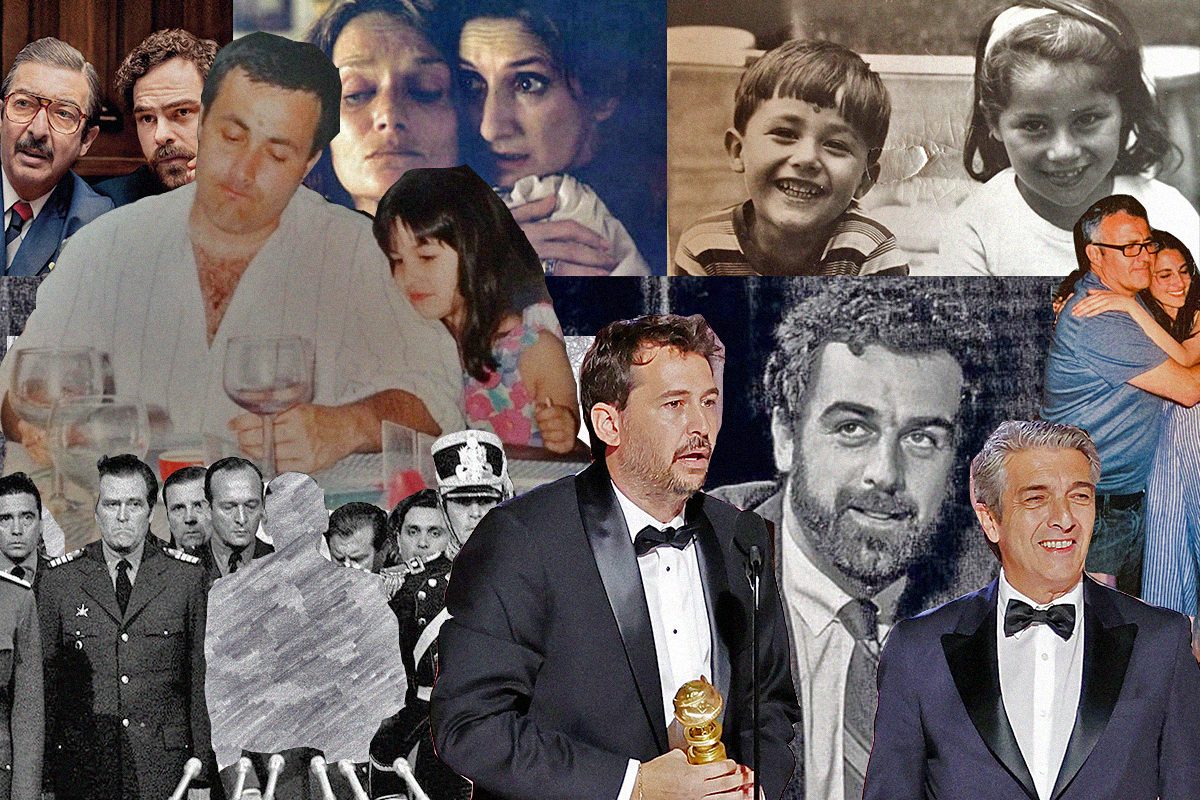

Collage by Antonia Cereijido
By ANTONIA CEREIJIDO
Growing up, Antonia Cereijido knew that her father’s family was exiled from Argentina in the 1970s, but she didn’t really grasp what it meant until she came across the film La Historia Oficial at her local library in 2004. The movie takes place during the last military dictatorship that ruled Argentina. Upon learning of the human rights atrocities committed by the government, Cereijido found herself feeling deeply sad but also angry that her family never told her that history.
Nearly 20 years later, she would experience a similarly powerful yet alienating feeling watching Argentina, 1985, a film about the trial of the leader of the dictatorship, General Jorge Rafael Videla, and other military officers. The trial took place only a couple of years after democracy was restored in the country.
The film centers on the two prosecutors that worked on the trial, Julio Strassera and Luis Moreno Ocampo. Strassera, the head prosecutor, passed away in 2015. Moreno Ocampo, who would go on to become the first chief prosecutor of the International Criminal Court, in The Hague, is currently based in Los Angeles, California.
Cereijido interviewed the former prosecutor at his home in Malibu. They discuss the relevance of the film today given that democracy is under attack in many parts of the world and the role of movies in helping to process painful and unspoken histories, which in the case of Moreno Ocampo and Cereijido are deeply personal.
***
Latino USA with Maria Hinojosa, produced by Futuro Media, is the longest-running Latino-focused program on U.S. public media.


